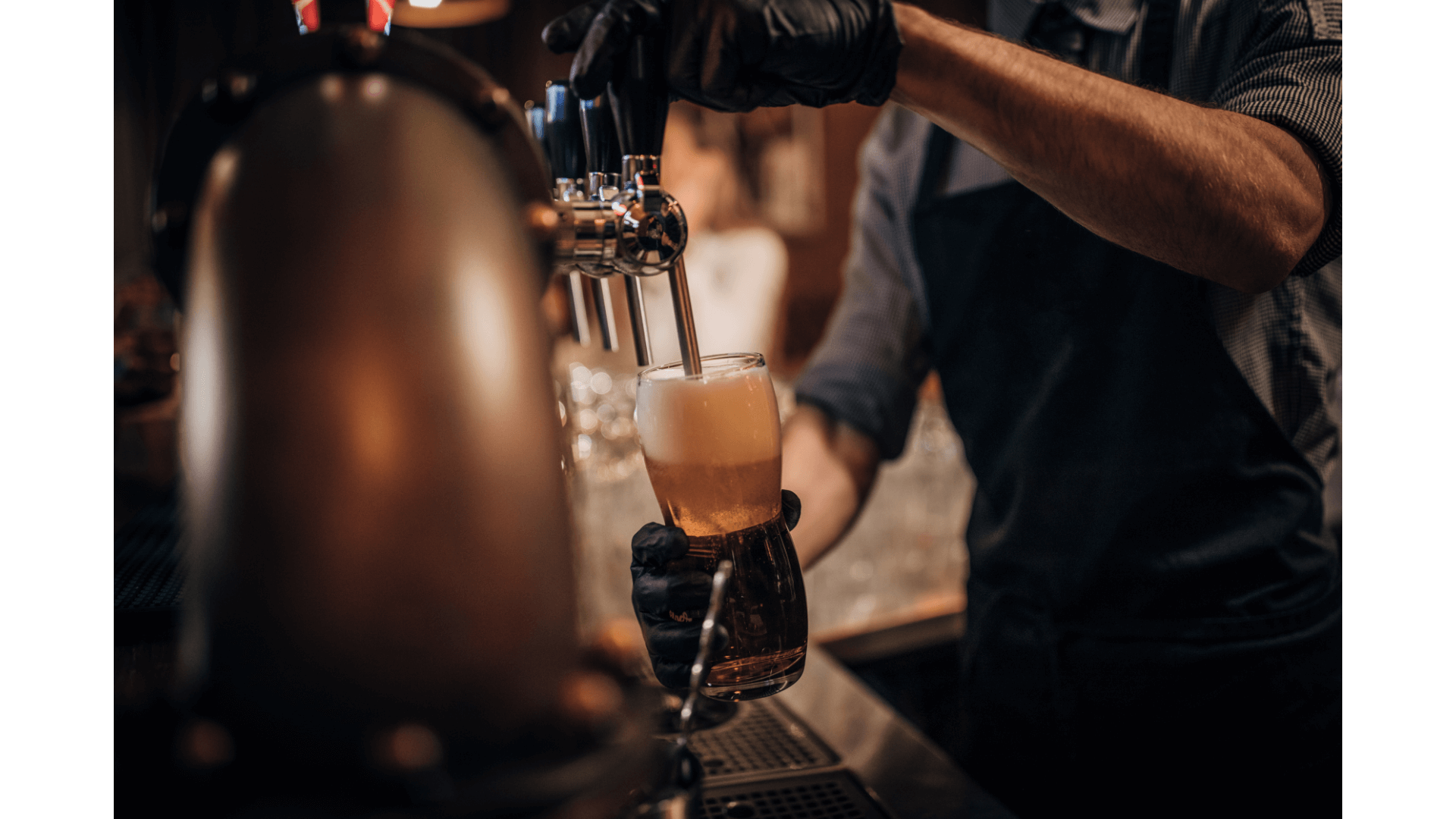Do you want to work at a job that is fast paced, fun, and lets you chat with interesting characters while at work?
If that sounds cool to you, then you might just have an amazing bartender inside of you, waiting to be let out!
What does a bartender do?
A bartender’s main job is to prepare and serve drinks to customers, so you will spend a majority of your time at work making sure everyone’s glass is full. Depending on the type of bar you work in, this task may be more or less challenging.
Some places are renowned for their cocktails and require a high level of skill to work behind the bar, mixing specialty drinks on a busy night. If you work at a pub, knowing how to pour the perfect pint of beer is essential. And if you work in a wine bar, you better be able to recommend both a red and white to any customer who asks.
In addition to serving drinks, bartenders have many other duties to consider, including:
- Taking and serving food orders for guests sitting at the bar
- Keeping the bar area clean and presentable
- Processing customer payments
- Replenishing stock/supplies during and at the end of the shift
What is the career path of a bartender?
Bartending may seem like just a fun way to make a little money and socialize with people while studying in university or living abroad. But, if you’re reliable and take it seriously, it can turn into a lucrative career.
While some small dive bars may only have one bartender working at a time, bigger places require a team of bar staff to run things smoothly, especially on busy nights.
Let's take a look at the hierarchy you may encounter working behind the bar.
Bartender
This is the entry level position at any bar and it is where you start to build your skills and gain crucial experience. You’ll learn how to interact with customers, mix and pour drinks, and work efficiently while maintaining a high standard.
Many people move on from bartending after just a short time, but if you stick around at one place and show you are dedicated, you could see yourself promoted up the ladder.
Lead bartender
The lead bartender is responsible for ensuring an establishment’s bar operations are running smoothly. They are in charge of keeping an eye on inventory, dealing with problematic guests, and managing the other bar staff.
As a lead bartender you must ensure that the rest of the bartenders are delivering excellent customer service and interacting with guests in an appropriate manner. If you sense that someone is in a situation they are having trouble dealing with, it’s on you to step in and help out.
You will also be expected to maintain relationships with vendors and other influencers in the bar community. This will help you stay up-to-date with current trends and keep your customers coming back week after week.
What skills does a bartender need to succeed?
There are certain personality traits that make someone a great bartender. You must be confident, friendly, organized, and able to stay calm under pressure, just to name a few. Nothing is more frustrating than a bartender who’s always in a bad mood or incredibly slow.
Speed is a bartender's best friend. The faster you are at crafting a tasty cocktail the happier the customers will be. That need for speed also extends to processing payments or restocking supplies during a shift. On a busy night, a good bartender is always in motion.
As a bartender, you must be a people person. Perhaps more than any other job in hospitality, bartenders interact with guests in a casual way that requires you to enjoy speaking and socializing with people in a friendly manner.
It’s not uncommon for the personality of a bartender to be one of the main reasons a guest keeps coming back.
Soft skills can take you a long way behind the bar, it’s important to know your craft as well. Mixing cocktails is seen as a science by many in the industry so it’s useful to take a bartending course that teaches you techniques and drink recipes to build up your skills.
Taking a course in mixology can help you pick up the essential hard skills you need to create cocktails that shine just as much as your personality.
So, if you think you have the right mix of skills and personality and you’re ready for an exciting hospitality career, check out Hosco’s current job openings and find your dream bartender job today!




